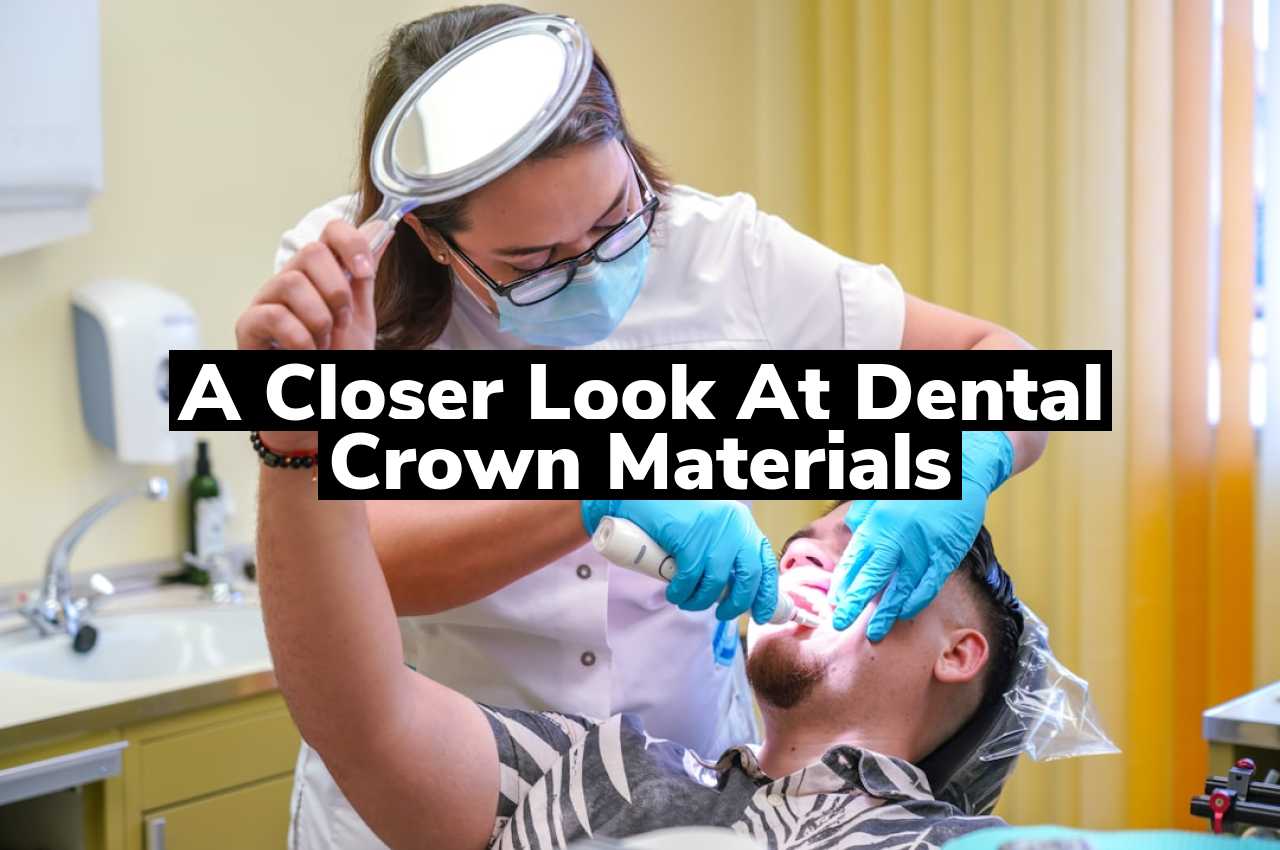Have you ever wondered what materials are used to make dental crowns? Dental crowns can be crafted from a variety of materials, each selected for its unique properties and compatibility with the human body. These materials are chosen based on their durability, aesthetic qualities, and how well they mimic the natural appearance of tooth enamel.
Types of Dental Crown Materials
When considering dental crowns, understanding the various materials available is crucial. Each material offers distinct characteristics in terms of durability, aesthetics, and cost. Common materials used for dental crowns include porcelain, ceramic, gold alloys, and metal alloys. Porcelain and ceramic crowns are popular for their ability to match the natural color of teeth, making them a favored choice for front tooth restoration. On the other hand, gold and metal alloys are highly valued for their strength and longevity, often used in crowns for molars which require greater durability due to the forces exerted during chewing.
For a deeper insight into how these materials are transformed into durable and aesthetic dental crowns, one might explore The Art and Precision of Dental Crown Making. This resource delves into the meticulous processes involved in crafting each type of crown, highlighting the advanced techniques and craftsmanship required to meet the specific needs of individual patients. Understanding these processes can provide a clearer perspective on the complexity and expertise involved in the creation of dental crowns.
Durability of Different Crown Materials
When considering dental crowns, one of the primary factors to evaluate is the durability of the materials used. Various materials are available for dental crowns, each with unique properties that affect their longevity and wear resistance. Porcelain, ceramic, gold, and metal alloys are commonly used, each offering different levels of strength and resilience against daily chewing forces and exposure to acidic environments. The choice of material can significantly influence how long a crown might last under normal conditions.
The lifespan of a dental crown also depends on factors such as the location of the crown in the mouth, the patient’s oral hygiene habits, and the precision of the crown’s fit. Materials like gold and metal alloys typically provide excellent durability and are less prone to chipping compared to porcelain or ceramic crowns. However, advancements in dental technology continue to enhance the strength and aesthetic appeal of all types of crown materials. For more detailed information on the options available, Explore Dental Crown Services in Frederick.
Aesthetic Qualities of Crown Materials
When considering dental crowns, the aesthetic qualities of the materials used are a significant factor. Various materials, including porcelain, ceramic, and metal alloys, each possess unique visual characteristics that can affect the appearance of the crown. Porcelain and ceramic crowns are popular for their ability to mimic the natural translucency and color of tooth enamel, making them a favored choice for front teeth restorations. Metal alloys, while strong and durable, are less frequently used where a natural appearance is crucial, as they do not resemble tooth enamel. The selection of material impacts the overall look of dental crowns and how they blend with surrounding teeth.
Biocompatibility of Dental Crown Materials
When considering dental crown materials, one of the crucial factors is their biocompatibility. This term refers to how well materials interact with the human body without causing any adverse reactions. Different materials vary in their biocompatibility, which can affect the overall health and comfort of an individual. It’s important for patients to discuss these aspects with their dental care providers to understand how different materials may interact with their bodies. For those looking for more information on dental materials, Lee Family Dentistry is a great resource. Visit this Frederick Dentist for further details.
Cost Variations Among Crown Materials
The price of dental crowns can vary significantly depending on the materials used. Common materials include porcelain, ceramic, gold, and metal alloys, each with different cost implications. Factors influencing these costs include the material’s durability, aesthetic qualities, and the complexity of the fabrication process. Additionally, geographic location and the dental laboratory’s fees can also affect the overall cost of a dental crown made from any specific material. As such, the choice of material can have a notable impact on the expense of the dental crown procedure.
Conclusion
For further inquiries, please call us at 301-662-0300 or read our reviews on Google Maps.

